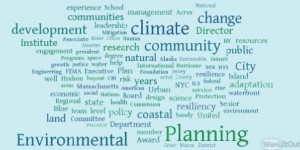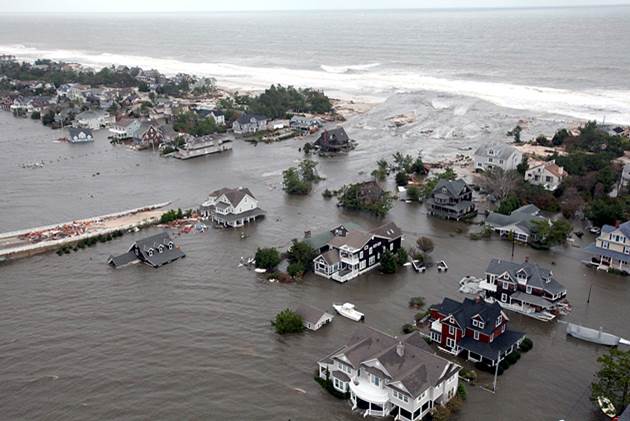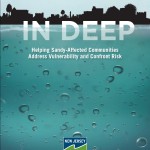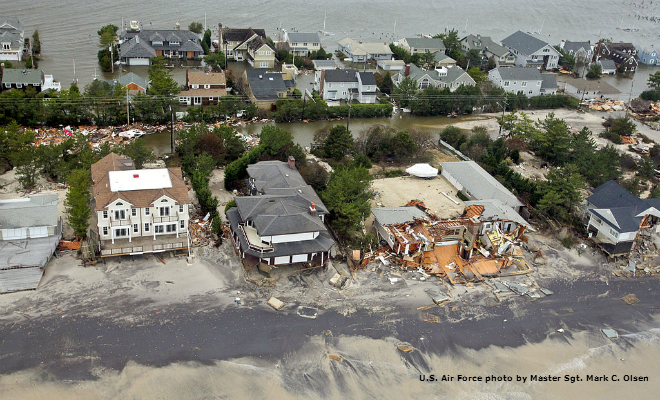New Jersey Future Blog
Workshop Focuses on Helping Coastal Communities Confront Climate Risks
December 15th, 2015 by David Kutner

Word cloud highlighting key issues at the Consensus Building Institute’s coastal adaptation workshop.
New Jersey Future was invited to participate in a coastal adaptation workshop on Dec. 11, 2015, hosted by the Consensus Building Institute, a non-profit organization based in Cambridge, Mass. CBI works with public and private, government and community representatives and leaders from around the world to broker agreements, negotiate conflict and build collaboration. The workshop assembled approximately 30 invited participants from across the country who work in federal and state agencies, educational institutions, non-profits, community organizations and the performing arts.
The objective of the workshop was to explore more effective methods for helping communities discuss response to rising sea levels and severe flooding – a complex, difficult and emotionally fraught topic. Participants were asked to consider how institutional, social and psychological factors, as well as economic and environmental justice issues, can create or exacerbate barriers to effective dialogue. Most particularly, the day’s discussion focused on building the capacity and willingness of coastal communities to talk about strategic transformation, relocation, or retreat – options that must be included among the limited number of long-term adaptation strategies available to them. This is particularly relevant to New Jersey’s shore communities, where sea level is rising and land area subsiding at a rate exceeding that of the majority of states along the eastern coast.
One of the highlights of the workshop was a dramatization by Anu Yadav, a writer and performing artist from Washington, D.C., who presented short segments of her solo play Capers, about families living in that city’s public housing who protest their forced relocation from their neighborhood. The dramatization made clear the devastating social, psychological and economic impacts that poorly-considered and insensitively executed relocation initiatives can have.
The workshop underscored how important it will be for practitioners helping communities to confront climate risks to be able to facilitate candid dialogue about their options and to keep community transformation in the mix of considered strategies.
















